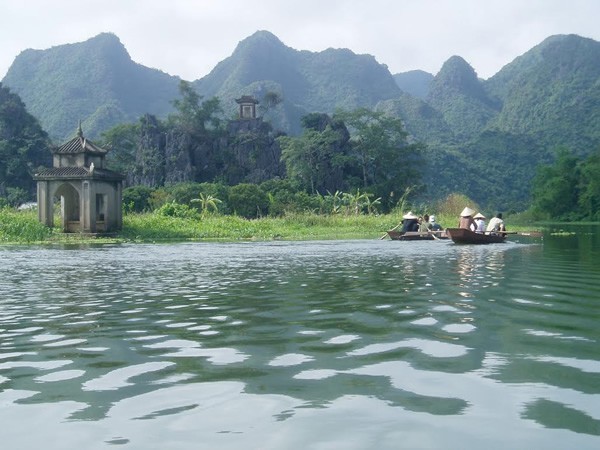Vietnam, formally the Socialist Republic of Vietnam, is the easternmost nation in Southeast Asia on the Indochina Peninsula. Economic growth in Vietnam has been among the world’s highest since 2000, with the highest Global Growth Generators Index among 11 major economies in 2011. Development, IT and High-tech industries are now a significant and rapidly growing part of the national economy. While Vietnam is a relative newcomer to the oil sector, it is currently Southeast Asia’s third-largest oil producer.
Vietnam is located on the Indochina Peninsula in Southeast Asia. The nation has borders with China, Laos, and Cambodia, in addition to a coastline to the east on the South China Sea. Vietnam has become a fast-growing economy and a major tourist destination over the past two decades. Archeological evidence suggests that people have lived in Vietnam for tens of thousands of years, and as a result, the country has a very rich history and culture. The geography of the country is mostly hilly and dominated by tropical forests.
Visa Requirements: When enrolled in their course of study, students can enter Vietnam on a Vietnam Visa in Hong Kong and then convert it to a student visa. Students may apply to the immigration police for this move, although in many cases the school they are enrolled in or a travel company can assist with the paperwork. Students can obtain the original tourist visa via their country’s Vietnam consulate or a travel agent from Vietnam.
Climate: The climate in Vietnam varies considerably due to latitude and elevation variations. Although still rainy, the dryer season is winter and lasts from about November through April. Temperatures are relatively constant in Ho Chi Minh City, in the southern part of the country, ranging from about 21 degrees C to 28 degrees C for most of the year. Northern areas typically see much more variation, however, ranging from lows of about 5 degrees C in January to peaks of about 37 degrees C in August.

Culture: The culture of Vietnam emphasizes the values of family and community. Dragons, Birds, Turtles, and horses are the main cultural symbols. The classical music and literature in Vietnam are both very well known and have origins from the 13th century. There are many festivals across the country celebrating Vietnamese culture, with the biggest celebrations reserved for Tet, the New Year celebration at the end of January. Soccer and martial arts are popular sports, although they are also common in western sports such as badminton and tennis.
Living Cost: Relatively low cost of living. On-campus housing can be found for about US$ 1,200 to US$ 1,600 per semester; all amenities, furnishings and internet service are included in this amount.
Vietnam study: Vietnam higher education: Vietnam higher education has embarked on a significant transformation. In January 2013 the “Law on Higher Education” came into force to reform and govern higher education as Vietnam transitions towards a knowledge-based economy.
The law provides for additional investment in higher education institutions as well as flexibility in tuition structure, graduation, academic management, and accreditation collection. Universities may also form partnerships with industry, set up science and technology centers, earn income from investments in science and technology, and hold inventions rights.
Which Vietnam Institutions is Better? Vietnam’s higher education institutions offer a wide array of programs and some schools are specialized in certain fields. Ho Chi Minh City, for example, specializes in science and technology while Hanoi University specializes in language studies, but also provides English-language programs in the areas of business, finance, accounting, international studies, and information technology.
In addition to earning a master’s degree in Vietnam, students can study in a multicultural environment that offers an immersion in Southeast Asian culture. Vietnam’s private international schools have a very diverse student body and staff, putting together diverse perspectives and fresh ideas from around the world. International schools have a wide range of master’s programs, all taught in English, from MBAs to Engineering.
Universities: Vietnam has public universities as well as private ones. Public universities run either at national (Hanoi and Ho Chi Minh City) or regional (Thai Nguyen, Hue, and Da Nang) levels. With the new education law, the government also gives priority to private institutions that operate on a non-profit basis in terms of land use, taxes, capital investment, and staff training. Three types of universities are also listed in the new law: research-based, application-based and experiment-based.
Academic Year: At most colleges, the academic year is semester-based and starts at the beginning of September. First semester classes end at the beginning of January, followed by exams and a holiday period for Tet, the Lunar New Year. The second semester lasts from mid-February to late June and is followed by exams. Some schools use a system for the trimester that includes three semesters of 16 weeks.
Post-Graduate Opportunities: The vast majority of Vietnamese workers are employed in either agricultural or Service industries (about three-fourths of the workers). Manufacturing industries are increasing, and many multinational corporations are now doing business in Vietnam. Major Vietnam-made products include shoes, clothes, marine items, electronics, crude oil, and machinery. International students wishing to pursue a job in Vietnam after graduating with a master’s degree must first receive a job offer.
The prospective employer will then arrange for the work permit necessary, which requires a criminal record check and health or medical certification. In general, Vietnam’s government allows only highly skilled international workers and requires applicants to have at least five years of experience or professional qualifications; however, this requirement should be met by most employees with master’s degrees.
Health Insurance: International students from their home countries will need private health insurance or care. Some private institutions include tuition and fees for health services; the cost is low.
Tips: Vietnamese money is Vietnamese Dong (VND) and currency notes, such as 500,000 and 50,000, have great values. Make sure to watch for the zeroes!




